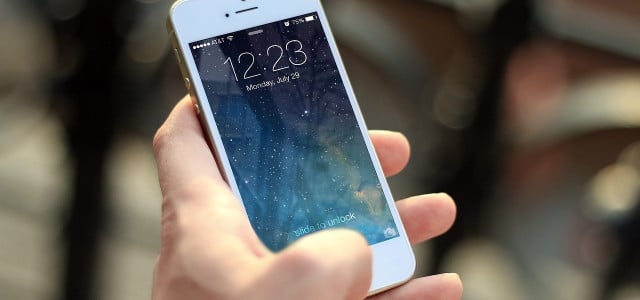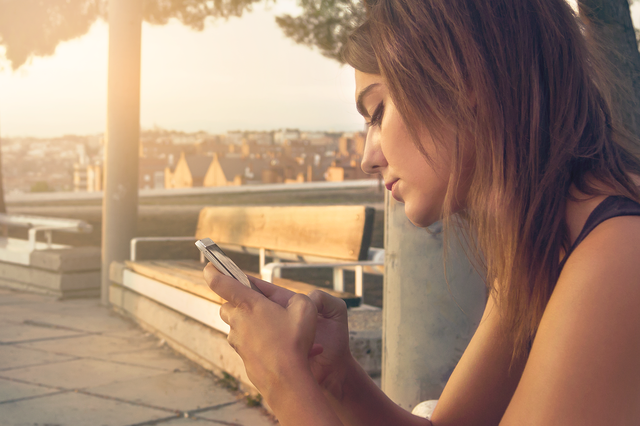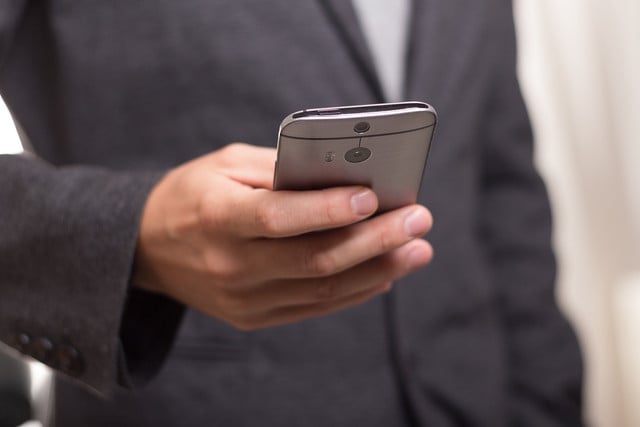
Nomophobia is an anxiety disorder that occurs when you don’t have your cell phone with you or it’s not working. We tell you what characterizes the phenomenon and how you can deal with nomophobia if you are affected yourself.
Surely you know the bad feeling when you accidentally left your smartphone at home. After all, a cell phone has long been more than just a device for making calls: you can use social media apps like Instagram or TikTok on it, save important documents and have the option of paying with them. For many people, nothing works without a cell phone these days. If you feel downright scared when your phone fails, it may be nomophobia.
The term nomophobia is made up of the first syllables of the English term “No Mobile Phone Phobia”. Especially in today’s networked world, there is a great fear of missing out on something online. However, nomophobia does not stand for mobile phone addiction, but is an anxiety disorder. It was scientifically examined for the first time in 2010.
What is nomophobia all about?

(Photo: CC0 / Pixabay / Pexels)
Nomophobia can occur in varying degrees of severity, as a study by the private university in Göttingen suggests. Around half of the more than 800 study participants had moderate nomophobia.
According to another study, the anxiety disorder can manifest itself through the following symptoms:
- Fear
- nervousness
- Tremble
- sweats
- altered breathing
- confusion
- racing heart
Nomophobia can have various causes. For example:
- the fear of not being able to research information
- the fear of being isolated from others
- Fear of not being able to call for help in an emergency
Nomophobia symptoms not only appear when a cell phone is forgotten, but also in moments when the battery is empty or when there is a dead zone. It is still unclear whether nomophobia only occurs when someone is already addicted to a cell phone or whether they are independent of it.
According to the Göttingen study, nomophobia primarily affects younger people and mostly women. Nomophobia is often related to the “fear of missing out” (“FOMO” for short) – the feeling of missing out on something important. Nomophobia is also more likely to occur when you’re already feeling bad, such as during depression or on days when you’re feeling particularly lonely.
What helps against nomophobia?

(Photo: CC0 / Pixabay / niekverlaan)
Nomophobia has not yet been recognized as a disease. Unlike other phobias, there are no concrete treatment approaches. A second study by the Göttingen University of Applied Sciences is currently under way, which is intended to clarify how nomophobia changes as a result of cell phone use for a limited period of time.
However, according to Yvonne Görlich, who led the Göttingen study, the following methods can help with nomophobia:
- Set specific times without your cell phone. You can improve yourself.
- Issue push notifications. This ensures that you don’t reach for your cell phone as often.
- Wear a watch instead of reading the time from your phone.
- Find a distraction when the urge to check your phone gets too much. You can then, for example, read, go for a walk, clean up or do sports.
Also, engaging in relaxation exercises, such as progressive muscle relaxation, can be helpful in a situation where nomophobia is particularly pronounced. However, if your nomophobia is particularly bad, you should speak to your doctor urgently.
Read more on Techzle.com:
- Away with the smartphone! 7 strategies to keep children occupied in a meaningful way
- Cell phone broken: Common damages and what you can do now
- Mobile phone fasting: Smartphone diet in a self-experiment